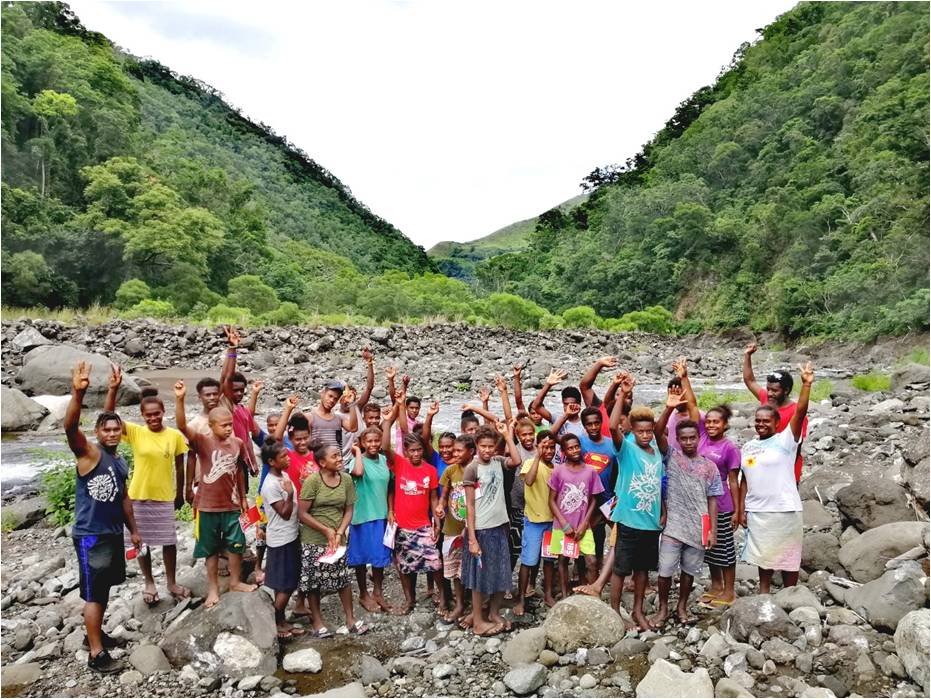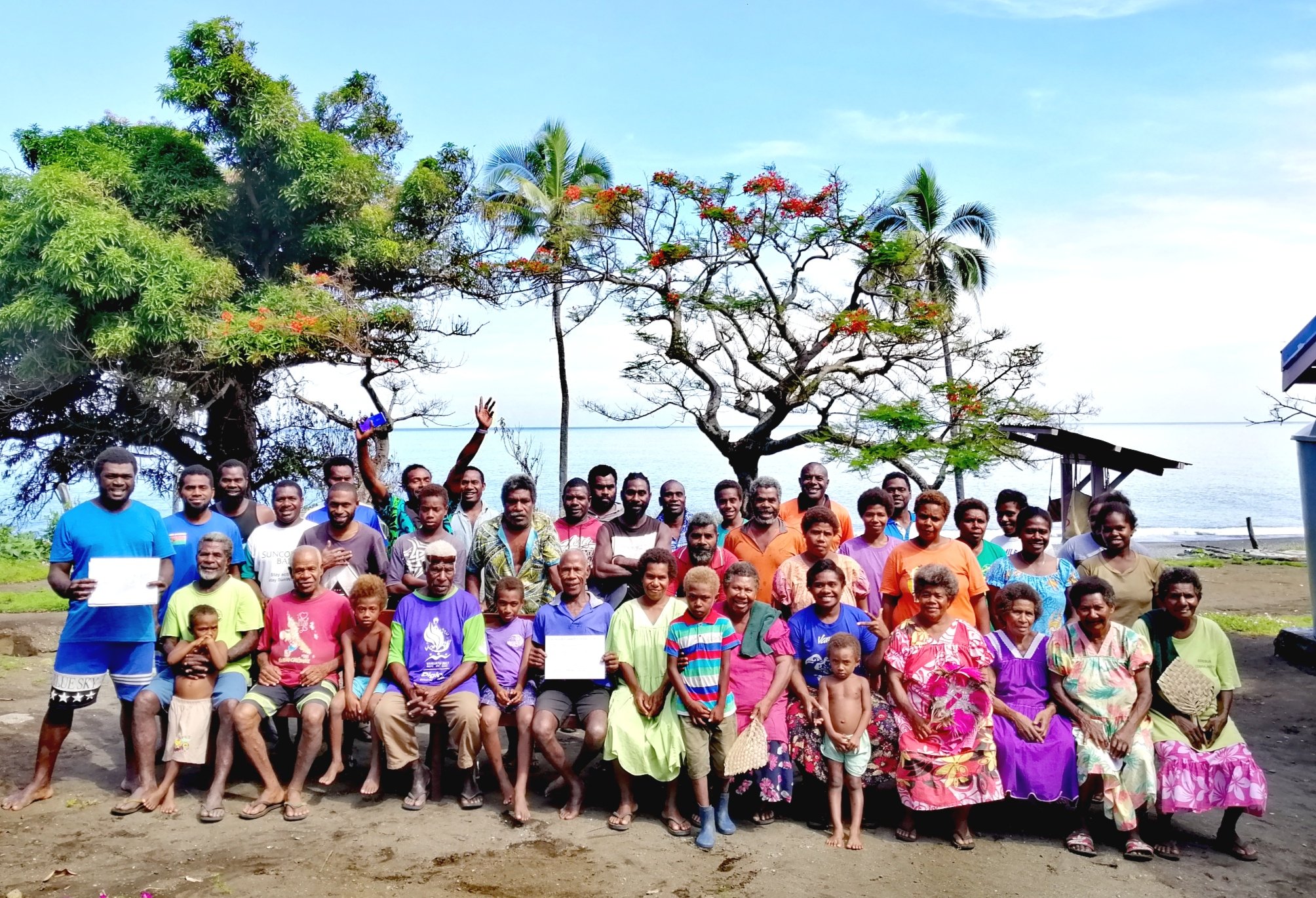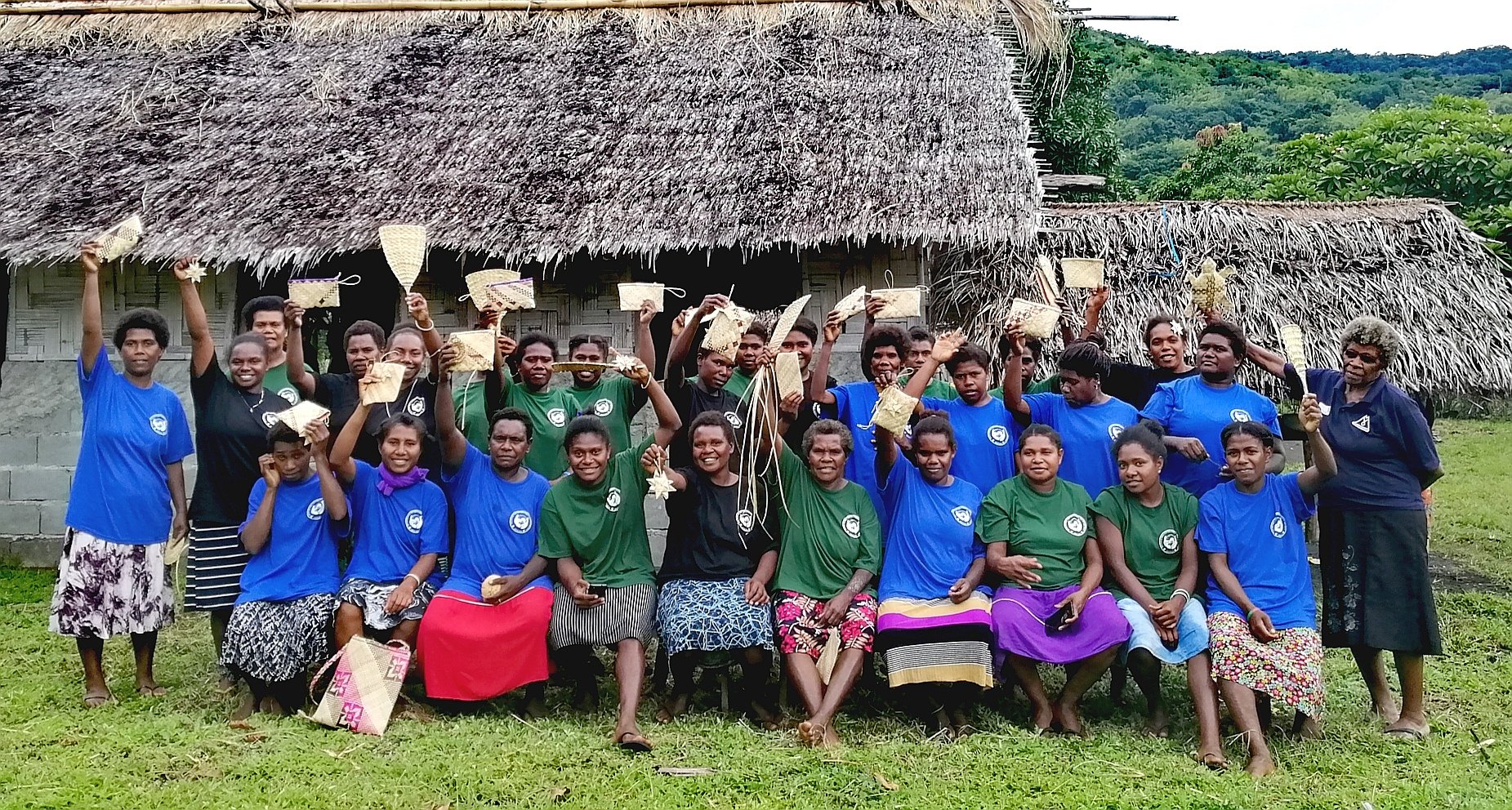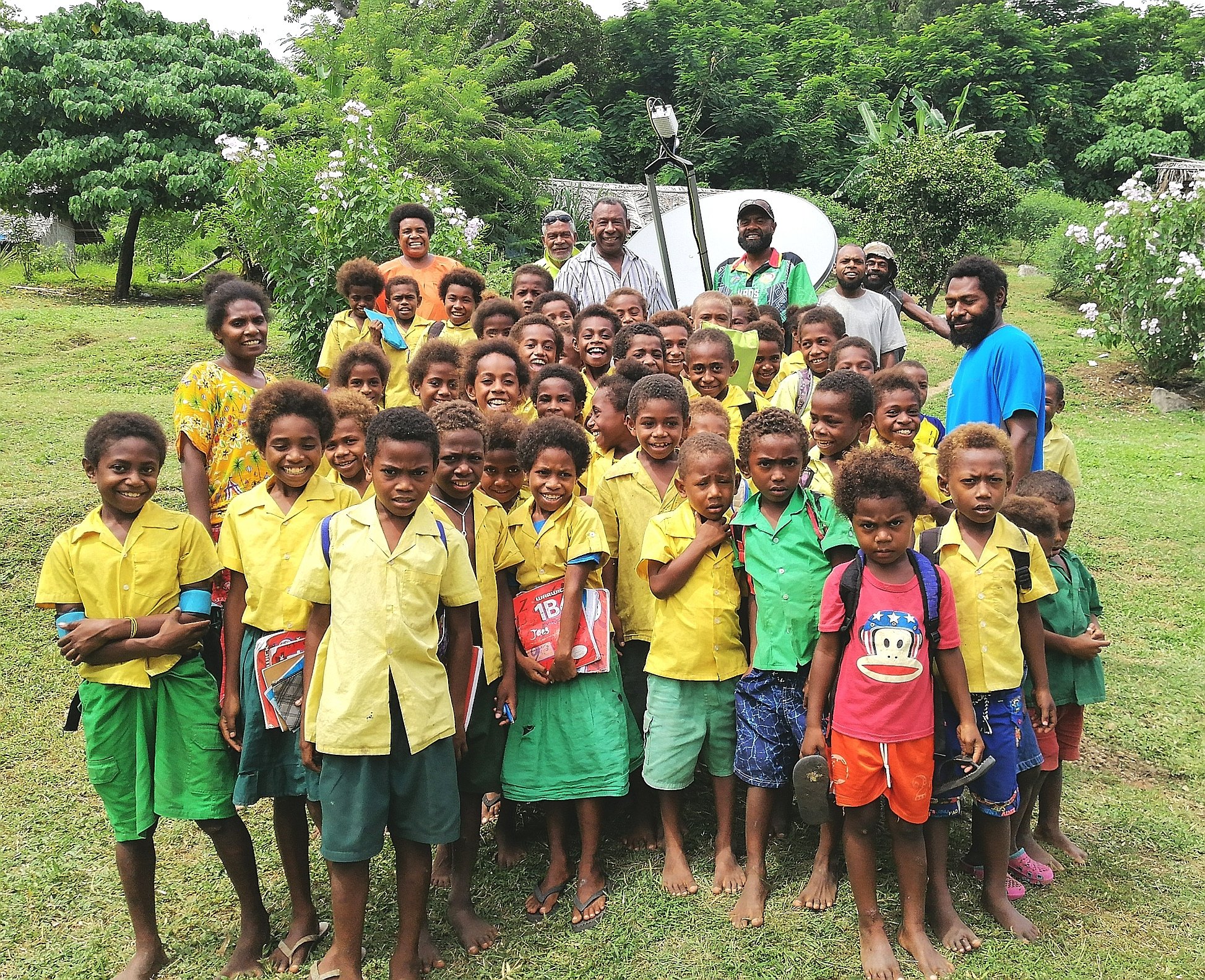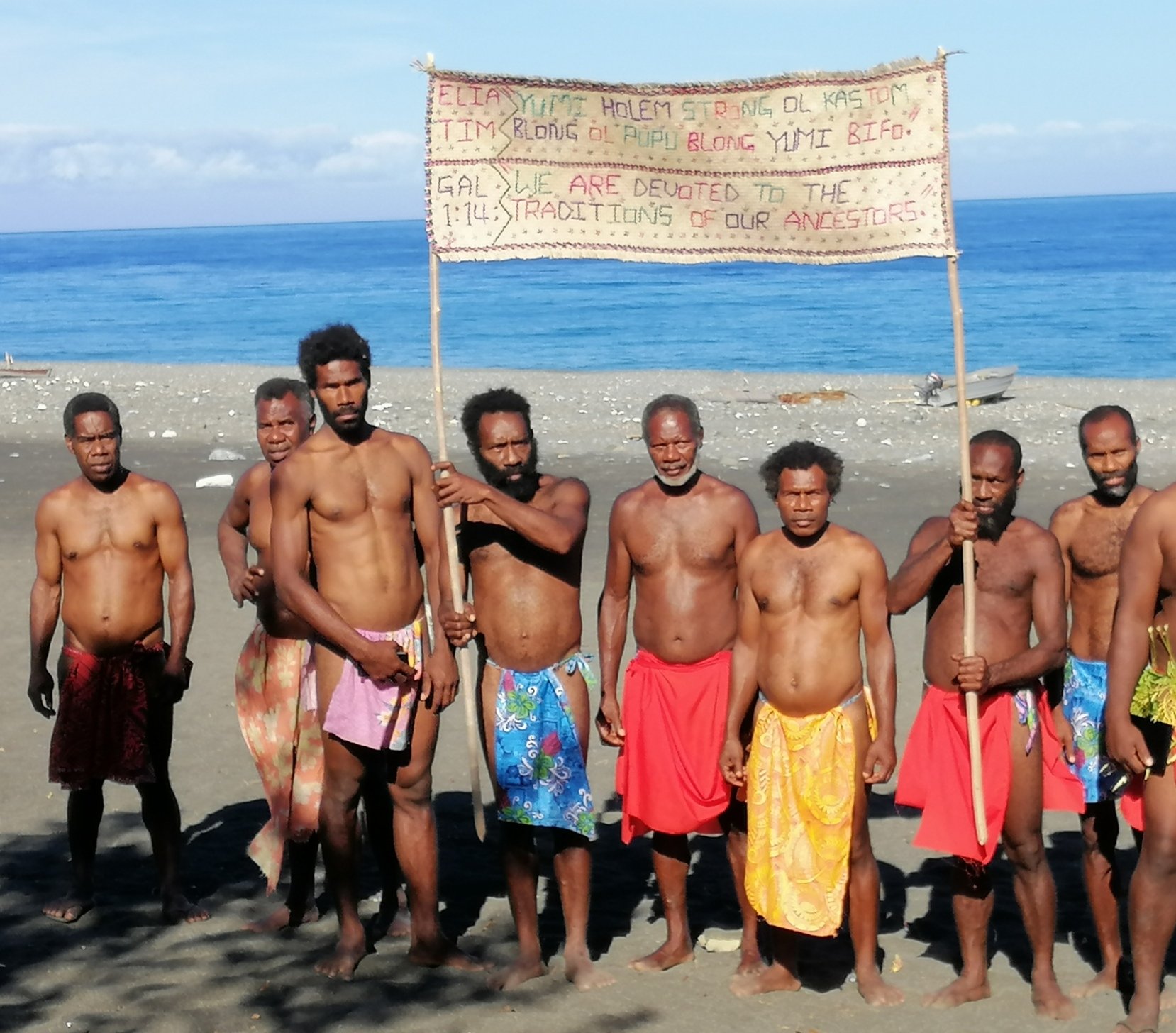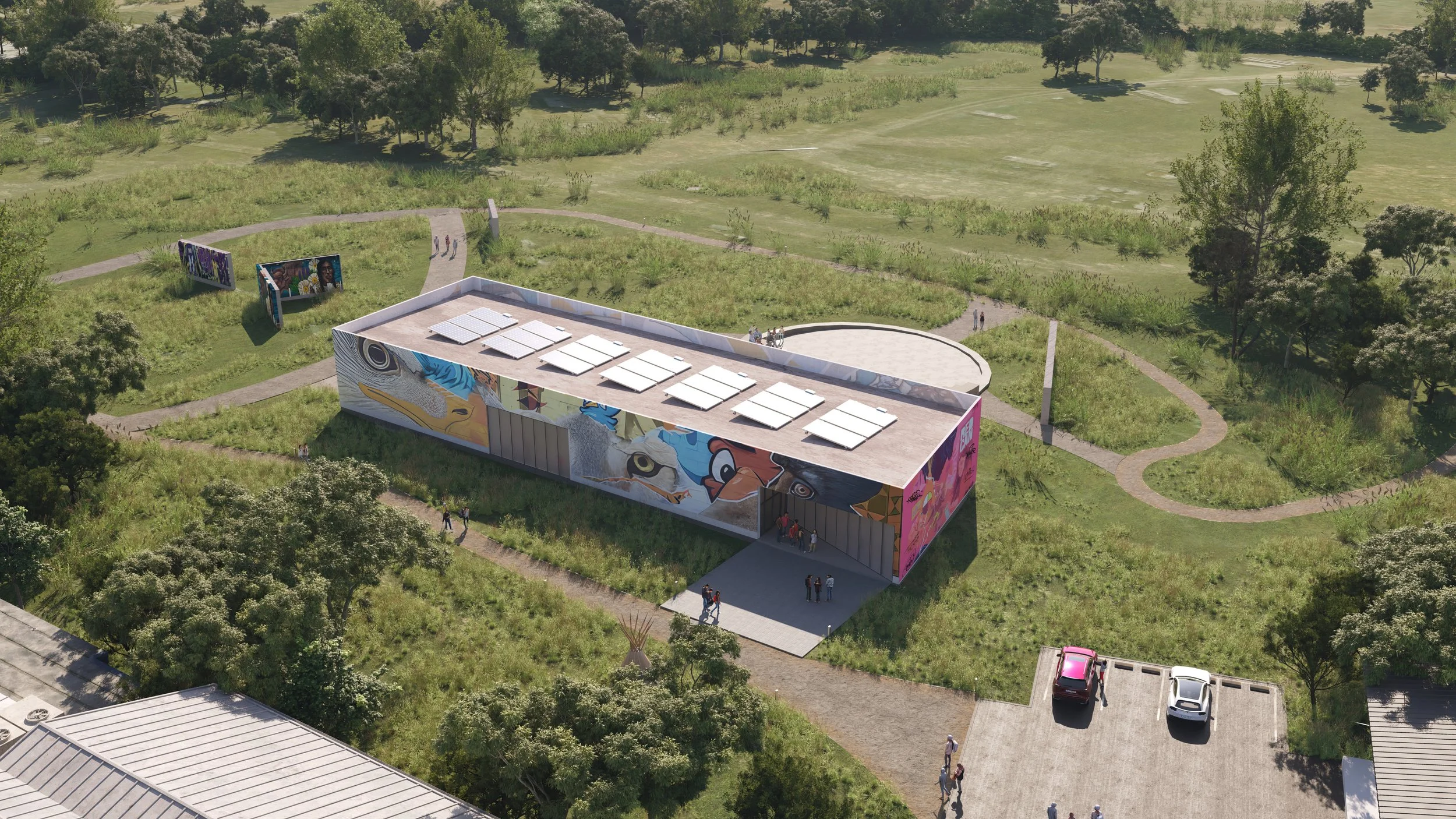Impact Spotlight
Supplying 13 communities with solar powered high speed internet
Improving conservation efforts for 80,000 hectares of forest
Expanded education opportunities for more than 2500 people
About
In the South Pacific, many island nations lack access to electricity, and, as climate change intensifies, lack the ability to seek out aid and build their networks in the wake of intensifying natural disasters. Espiritu Santo is the largest island in Vanuatu, an archipelago country. While the indigeneous communities of Vanuatu make some living via the tourism industry, the majority of its islands, including Santo, lack access to electricity. relying exclusively on diesel and fire for light. Additionally, the region’s limited phone reception and lack of internet access means that Santo is almost entirely disconnected from the outside world.
Founded by an Indigenous-led network of 42 villages from across the two Area Councils of West and North West Santo in Vanuatu, the Santo Sunset Environment Network works to improve environmental protection and conservation; and to influence the design and implementation of effective, inclusive, resilient and sustainable development strategies.
“We are the most remote part of Vanuatu, with no roads, electricity, piped water, mobile phone networks or basic government services, but now we will be able to address climate change and development challenges with access to solar-powered satellite internet. This is the future of locally-led sustainability and resilience.”
HF Partnership
Led by environmental champions from two area Councils and 42 tribal villages, this project will install at least 13 new solar-powered satellite internet stations in communities and schools, serving a population of more than 2500 people. Once installed, SSEN will work with the UNDP to host trainings and educational workshops linking village Community Disaster and Climate Committees (CDCCs) to the national authorities, training the Women's Network on reproductive health and access to weaving cooperatives, linking the Western Farmers Association to cacao buyers in the capital, and providing school children with an environmental curriculum and teaching materials.
Resources
In the News


